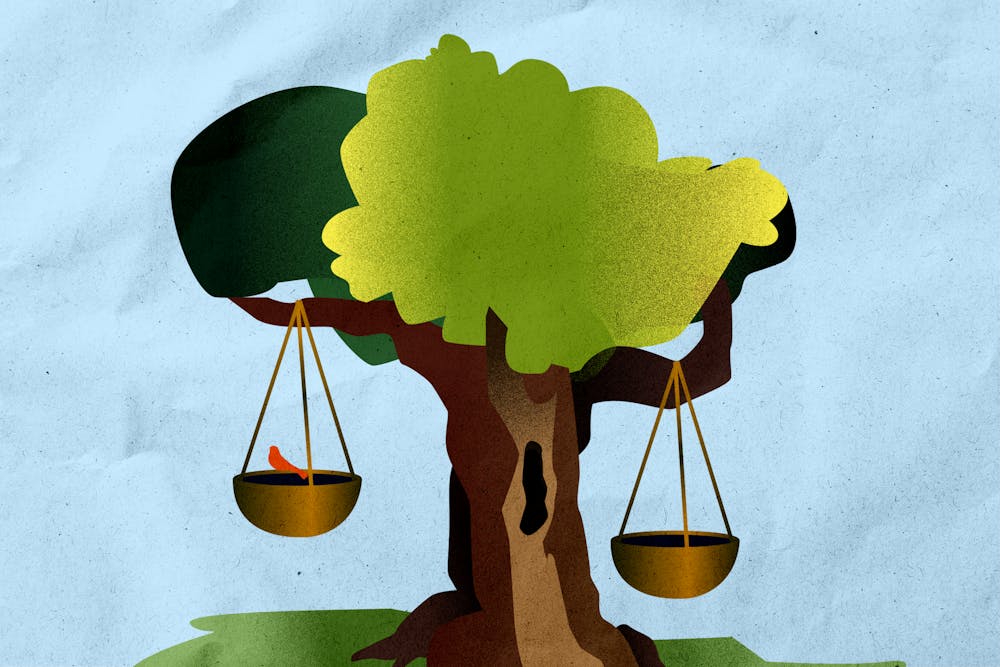At the UNC School of Law, the Environmental Law Project is a space for students to not only explore but also collaborate in environmental law fields.
Rachel Coutinho, treasurer of the ELP, said that the project aims to perform three tasks: provide a social platform for law students, offer community service opportunities and mentor others involved with environmental law.
“The core of what we do is giving people the knowledge of what this field looks like, giving them the resources they need to pursue it further,” she said.
President Caitlin Sarpal said that the organization offers various activities such as hosting guest speakers and finding environmental law job opportunities. Furthermore, the ELP includes a research symposium, pro bono projects and a recycling program.
Communications Director Chloe Picchio said that taking on pro bono projects, both for the ELP and for the law school, lets her make a real difference. Occurring usually under the supervision of another attorney or professor, Picchio said that engaging in pro bono work allows students to work through any hesitations and potential issues which may come up during later legal work.
For Sarpal, environmental law is something that affects every single part of a person’s day, including in areas such as food safety, air quality and public transportation.
“I think there's so many different areas of the legal world and all of them are important for their own sake," she said. "I do think environmental law, in particular, really affects people's day-to-day lives, maybe more than we realize.”
While Coutinho said that many people believe environmental law focuses on just 'going green,' she believes it is much more. Essentially, she said, environmental law helps find compromises between industrialism and environmentalism.
“It's about finding solutions, to bridge the fact that we acknowledge that we still need to have corporations creating value for society,” she said.



